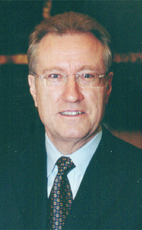Mr. Speaker, in talking about empty rhetoric, I think we just got a bit of that.
The member seems to have forgotten that the cuts first of all started back in the years of the Progressive Conservative government. We did take further amounts from all budgets. I understood what the hon. member's party wanted us to do and what we of course wanted to do and promised to do was to eliminate the deficit. We had to cut costs to do that, so yes, we did that.
We organized the budget in a way that makes it as efficient and as effective as it possibly can be. We have got great value for the taxpayers' dollars out of what we are doing. We are meeting our commitments. There is no doubt that we are squeezed for funds, that we need additional funds.
The Reform Party would not be giving us any additional funds if we followed what it suggested and promised in the last election. I take it the Reform Party stands by its promises from the last election. It said it would put a freeze on any additional expenditure for three years and that all of the money in surpluses would go for debt and tax reduction. On the formula that it promised in the last election campaign, not one penny would come from the Reform Party to help defence.
This year this government increased the defence budget. The Minister of Finance stood in the House in February, and he received a standing ovation, when he indicated that for the first time in a dozen years additional money was being provided for our troops.
Let me also give one other illustration of where we have improved and we have made it more efficient and more effective. We played a major front line role in the Kosovo air campaign. No one likes to talk about bombing and about the need to attack, but when it came to putting our resources and our people on the line, we were able to do that. We could not even do it to that extent in the gulf war because we did not have the equipment that was necessary to play that kind of a front line role. However, we did it in the Kosovo air campaign. I think that quite clearly indicates, as the chief of defence staff has clearly indicated, we are more combat capable. Our troops are more combat capable today than they were in the early nineties.
We have managed to get the deficit eliminated. We have managed to buy new equipment. We have managed to change many parts of the Canadian forces with over 300 changes and reforms. We have managed to make our troops more combat capable so that they can operate in defence of peace and in the building of peace. I think that is greatly to the credit of the government. It is certainly not a position we would be in if the Reform Party were managing the budget.

